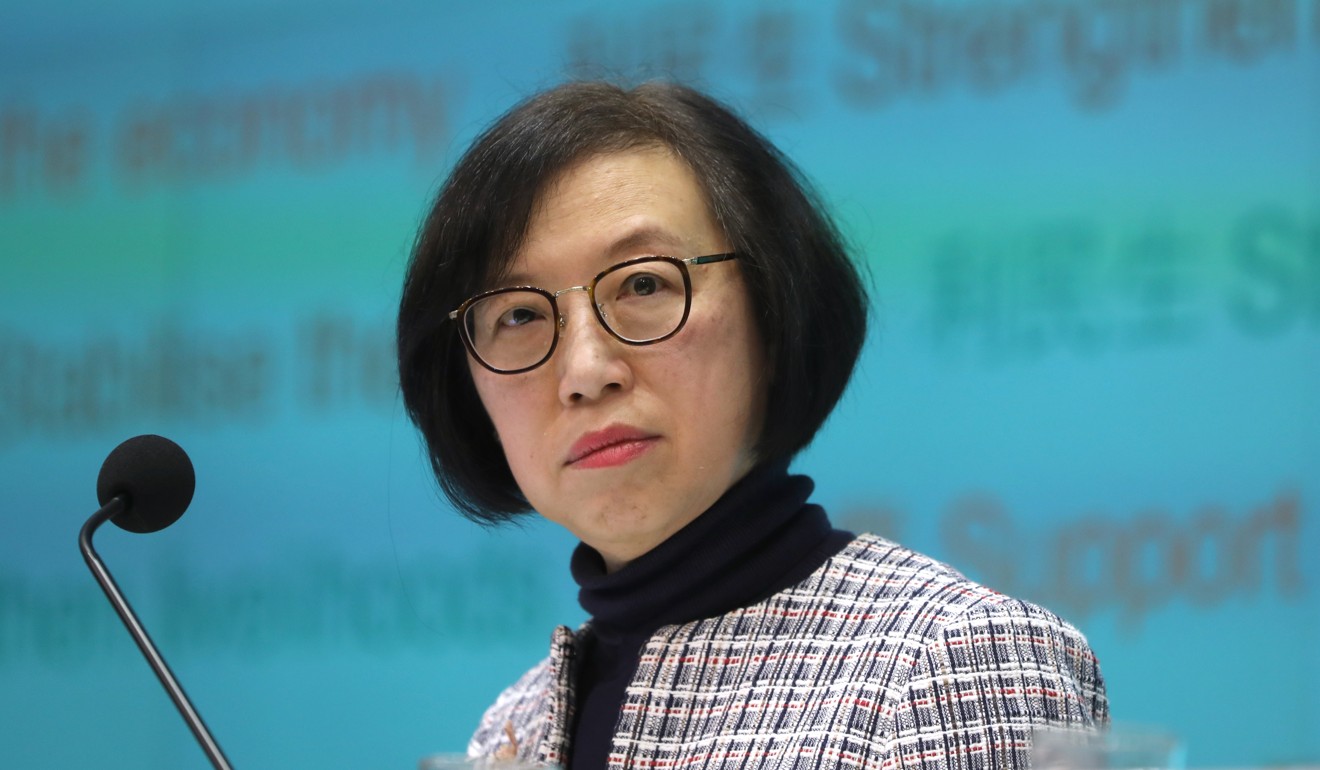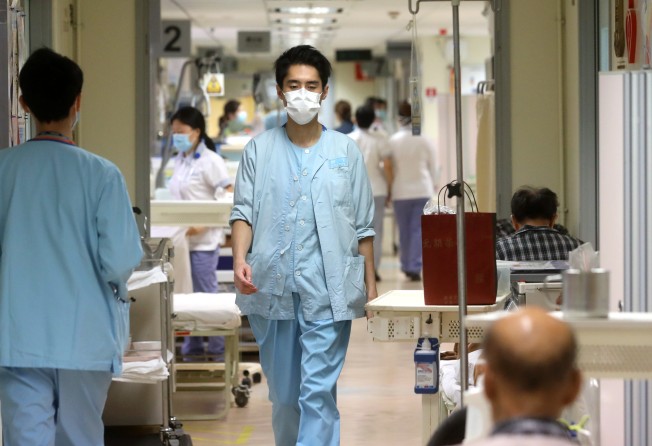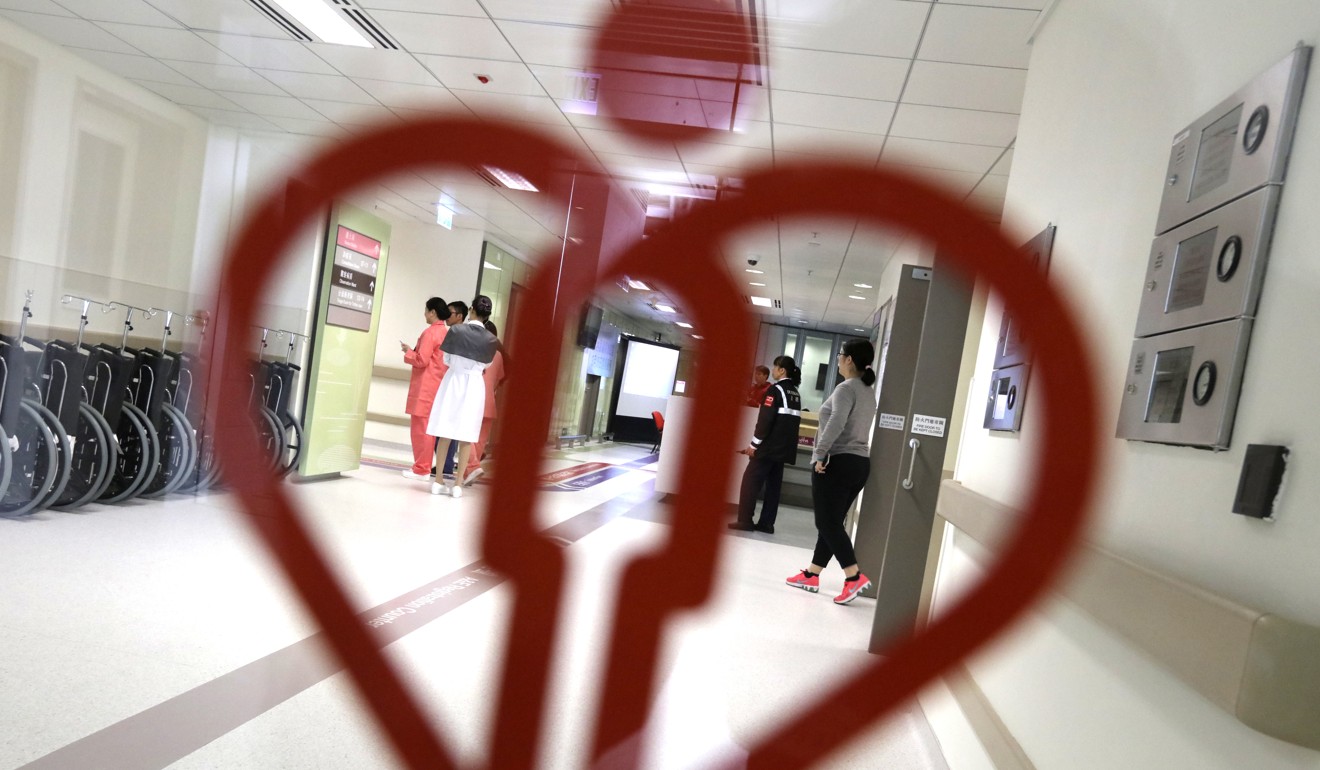
Overseas doctor recruitment row intensifies as hospital consultants and Hong Kong health minister call on Medical Council to explain why it rejected the proposals
- Public Hospital Consultant Association, which represents about 190 senior doctors, expresses ‘extreme regret’ over rejection of proposals
- Health minister Sophia Chan says consensus had been reached on plan to scrap internships for overseas doctors and expresses disappointment Medical Council scuppered the idea

A row caused by Hong Kong’s medical watchdog rejecting proposals to relieve a chronic doctor shortage escalated on Friday as public hospital consultants united with the city’s health minister to demand an explanation.
The Medical Council on Wednesday dismissed four options aimed at attracting more overseas doctors to the city’s understaffed public hospital wards.
In a statement on Friday, the Public Hospital Consultant Association, which represents about 190 senior doctors, expressed “extreme regret” over the rejection.
The association urged council members who opposed the proposals to “take the initiative to explain their rationale in public”.
“The council’s decision ignored the well-being of patients and the needs of public health care. It was different from the general view in the sector and it pitched the interest of doctors against citizens,” the statement read, adding the council needed to review its decision and make voting records public.
Hours earlier, Secretary for Food and Health Professor Sophia Chan Siu-chee wrote on her blog that the rejection came despite her reaching an agreement with major industry representatives that an internship requirement for doctors recruited from overseas should be relaxed.
That plan was voted down by the council.
Chan wrote that council representatives, along with the Medical Association, the Hospital Authority and medical schools at the University of Hong Kong and Chinese University, had also unanimously agreed the serious shortage of doctors in the public sector needed addressing.

The 32 members of the Medical Council included one representative from the Department of Health, one from the Hospital Authority, four from the two medical schools and seven from the Medical Association.
“It is very regrettable and disappointing the Medical Council did not approve the relaxation of internship requirements for foreign-trained doctors,” Chan said, adding she would continue to communicate with the sector to explore other options.
Specialists trained overseas can currently apply for an exemption from part of a 12-month internship after passing a licensing exam. The proposal would have exempted foreign-trained doctors completely from the internship if they had already completed one overseas.
Hong Kong’s public hospitals are short of about 300 doctors at any given time. Recruiting more from abroad has long been floated as a solution but has been met with resistance from the health sector.

Some doctors called for the watchdog to vote again on the internship proposal, blaming a “flawed election system” for the failure to reach a solution.
Some 29 council members were required to vote on whether they supported each of the four proposals and the one with majority support would be picked.
But the number of “yes” votes for each option ranged from three to 14.
In response to the criticism, Dr David Lam Tzit-yuen, a member of the council and vice-president of the Medical Association, said that, while he was disappointed by the result, it was impractical to ask council members to explain their rationale for opposing the proposals.
“Most of us opposed at least one of the proposals mainly because we preferred another. Are we prohibited from voting ‘no’ at all?” he said.
Lam said it was not the council but the ballot method that ignored the needs of patients.
“The council should have asked members to choose their preferred option. If none of the four reached a simple majority, a second round of voting should have been held,” he said.
The association, the city largest doctors’ group, conducted a poll earlier and found 75 per cent of the doctors agreed to relax the internship rules.